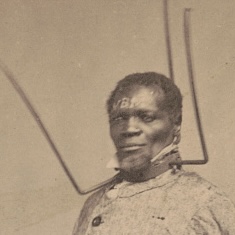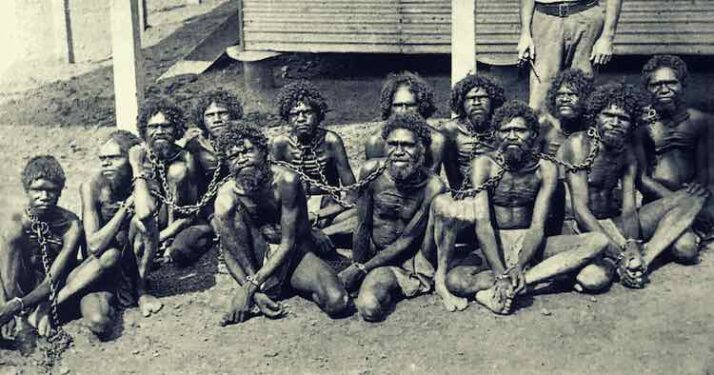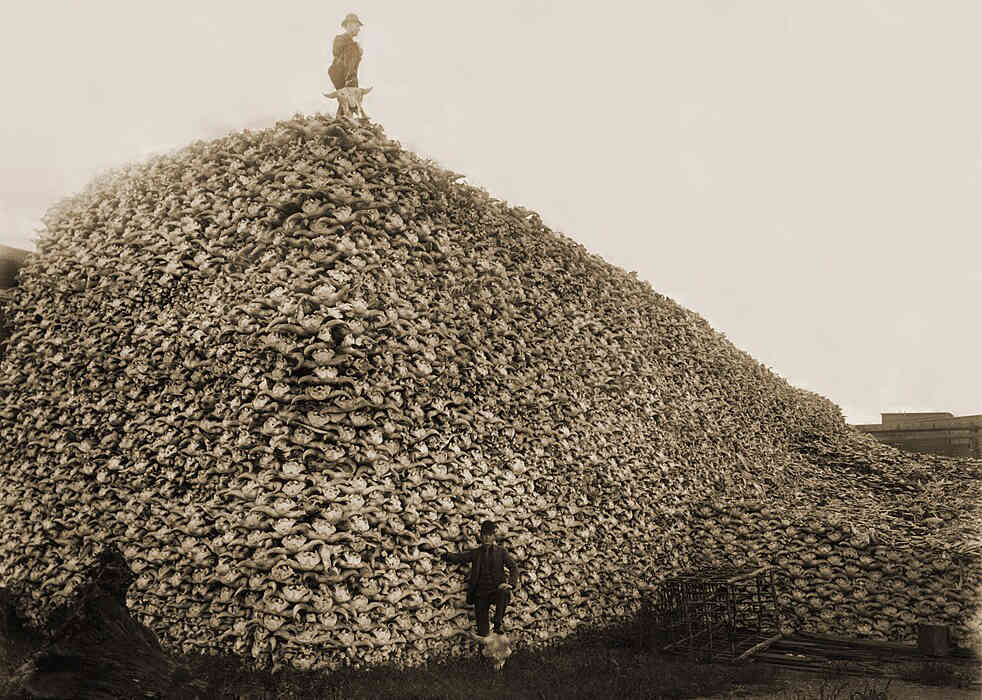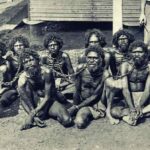I would guess most people who read this blog live in countries that have been conquered and perhaps colonised at some point in their history.
From the times of human migrations out of Africa millennia ago, populations have moved, fought for land, and expanded their territory in response to climate, threat and need.
For example, in Biblical times, powerful nations like Egypt, Asyria, Babylon, Persia,Macedonia/Greece and Rome all conquered, and to some degree occupied Canaan/Palestine/Israel. Smaller countries like Israel and Philistia jostled for position where they could. It makes conquest seem so “normal”.
But European colonisation of the Americas, Africa, Asia and Oceania over the last 500 years has possibly had the biggest impacts of all.
A short history of European colonising
Portugal and Spain (16th century)
European nations had a long history of overland trading with Asia via the Silk Road and other routes. Italy was generally the centre of this commerce.
But around the year 1,500 naval and navigational technology made exploration by sea much more feasible. Nations with ports on the Atlantic Ocean had the advantage.
Portugal and Spain began to trade with and exploit coastal peoples in the Americas, Africa and Asia. Spices from Asia and gold & silver from the Americas began to enrich Portugal and Spain. Initially, trading ports and protective garrisons were set up in the exploited countries, but gradually the number of settlers increased.
At first these exploits weren’t wholesale invasion, but fighting with indigenous populations did occur and European diseases such as smallpox took their toll. Local populations were often more or less enslaved. The Spanish conquests in South and Central America were perhaps the most brutal.
Indigenous populations plummeted in many parts of the Americas, being literally decimated. African slaves were often used as replacements.
By the 17th century, coffee, chocolate, sugar, potatoes and cotton from the colonies were all enriching life in Europe.
Christianity had both a positive and negative role in this. Catholic missionaries often followed the traders and conquerors, and while they sometimes worked hard to protect the indigenous peoples, they also often supported the idea of treating them as lesser humans.
Netherlands, France & Britain (17th & 18th centuries)
Portugese and Spanish power declined, though Spain maintained a large area of colonies in the Americas. The Dutch, French & English took over as the main colonisers.
The Dutch had interests in the Americas and Africa, and transported slaves from Angola to work plantations in Brazil. But their main focus was the Dutch East Indies (now Indonesia), where they fought off other European colonisers and exploited, sometimes brutally, the indigenous peoples.
The Dutch explored far and wide looking for commercial opportunities. They were the first Europeans to “discover” Australia, but finding few commercial opportunities, did not pursue colonisation there. The Dutch had few settlers in the East Indies, but South Africa was a major Dutch colony.
The French tended to be focused more on Europe than on the wider world, but still had colonies in Canada, South America and India. Their legacy, for good and ill, is probably less than the other European colonising powers.
In the end, the British Empire became the largest group of overseas colonies – Canada, USA (for a time), West Indies, India, Australia, New Zealand and a number of African countries in total comprised about a quarter of the world’s land mass. They fought off French interests in Canada and India, and later the Dutch in South Africa, but were unable to prevent the US from becoming independent.
I was taught as a child that the British colonists were more benign than the others, and there may be a grain of truth in this – they at least offered some autonomy to their West Indian subjects. But the British were heavily involved in the African slave trade, treated Aboriginal Australians as sub-human, and plundered resources in India, which led to famine for millions of Indians.
Overall, religion wasn’t as much a factor in these countries’ colonisation as it was for the Portugese and Spanish. Nevertheless, enforced conformity to Christian beliefs and practices had a negative impact on many.
The good, the bad and the ugly
European colonisation, particularly the later British colonies, brought some significant benefits to the colonised countries – healthcare, education, infrastructure and, later, democracy. Christians would also see as a positive the opportunities for indigenous people to believe (where this was a free choice!).

But this was at a cost.
- Millions of lives were lost in fighting and to disease.
- Slavery was enforced by violence, torture and murder (although to be fair, slavery was common around the world before European colonisation). Slavery in the US contributed massively to white wealth, and its effects (racism, white supremacy and inequality) continue to this day.
- Exploitation and destruction of resources – it has been estimated that colonialism had a significant part in increasing the wealth inequality between countries by ten times as resource extraction and slavery denied local populations the wealth that was theirs. Many former colonies still struggle with poverty, inequality, underdevelopment, and political instability.
- Colonisation led to suppression of indigenous cultures and dislocation of indigenous populations.
- Nation states were created with unnatural boundaries (especially in Africa), which has since led to fighting and genocide in some cases.
European colonists took away property, land, freedom and lives they had no moral right to take.
Two case studies
Bison in the US
Before the European settlement and conquest of North America, native Americans had lived for thousands of years in close relationship with bison, which were a source of food, clothing and other materials, as well as being sacred.
When European settlers invaded, they killed many bison so they could use the land for farming and transportation. But extermination of bison was also used to degrade native American life and drive the remaining tribes into controlled settlements. The bison skull “mountain” is a graphic reminder of how extensive this was.
As a result of these actions, bison numbers were reduced from an estimated 30-60 million pre settlement to less than 500 in the late 19th century. Conservation has increased numbers to a viable 30 thousand.
This is just one example of the appalling and often treacherous treatment of native American people by European invaders.
First Nations people in Australia
Australia was first settled by people arriving out of Africa something like 65 thousand years ago. Over millennia, these people gradually occupied the whole country in hundreds of different tribes or nations.
When the first English settlers arrived in 1788 there were an estimated 750 thousand indigenous people living nomadic and low impact lives.
Although the first explorers observed and interacted with Aboriginal peoples, and although instructions given by the King were to treat them with kindness and respect, less than 50 years after 1788, the Government proclaimed the principle of “terra nullius“, meaning that the land belonged to no-one. The colonists were legally free to exploit the land that was previously owned and occupied by indigenous peoples. This was only legally overturned in 1992.
But terra nullius reflected a dismissive white attitude to indigneous people, which allowed all sorts of mistreatment – murder, dislocation, underpaid labour and neglect. Children were forcibly taken from their parents and placed in white families. Education was often denied them. They were often forcibly removed from their land, which is a shocking thing for people who see themselves as belonging to the land and custodians of it.
What is worse, it seems not paying promised wages, not providing eduation and healthcare, etc, was a deliberate policy of some governments. After extensive study of offical goverment documents, Rosalind Kidd drew attention to: “the State’s exploitation of Aboriginal savings through entrenched frauds and negligence and through legal and illegal manipulation of trust funds“.

Why am I telling you this sorry history?
In Australia, treatment of Aboriginal people is a divisive subject. I believe it is similar in the USA.
Many Aussies, like me, feel that deep injustice has been done. It wasn’t done by me, but I can be responsible for some apology and reparations.
But other Aussies believe the past should be left in the past. Aboriginal people should be treated just the same as everyone else. They should just get on with life.
I think this is an inhumane view.
The Aboriginal people had evolved a culture and lifestyle for 60 millennia. They are said to be the oldest living culture on earth.
Within a few generations, white colonists took all that away. Their land. Their culture and language. Their children. Their health. Their owed wages. And their lives.
Their wellbeing has suffered through trauma and loss. They have succumbed to European diseases and then alcohol because their constitutions evolved in very different conditions. Many of them feel disrespected.
Many feel that the truth about what they have suffered for 200 plus years hasn’t been told, heard and recognised by many Australians.
White Australians have built a prosperous life on their loss and misery.
Should we not feel empathy? Should we not want to see them regain dignity, restore culture and be given some extra recognition in view of their previous ownership of the land?
What would Jesus do?
Jesus cared for the poor, the marginalised and the victims – there are so many examples in the gospels. As a Christian, I am called to be a disciple, someone who follows in my teacher’s footsteps.
Someone who seeks to restore what has been broken. Someone who proclaims in word and deed: “good news to the poor …. freedom for the prisoners and recovery of sight for the blind, to set the oppressed free” (Luke 4:18).
Call me “woke” if you like, but since “woke” means to be awake to the needs of others, I happily accept the epithet.
Colonialism, being based in greed and inhumanity, is evil. And evil cannot be ignored.
I pray that Christians in Australia may recognise the horrors of colonialism, have compassion and support restorative justice for First Nations people.
And Americans?
I hope American Christians may also recognise the evils of colonisation and have similar compassion for their indigenous peoples, plus the previously enslaved black Americans.
References
- Western Colonialism. Britannica.
- Analysis of European colonialism and colonization. Wikipedia.
- The Legacy of Colonialism – Unequal Power Structures and Lingering Trauma. Claudine Cassar, Anthropology Review, 2024.
- The economic impact of colonialism. Daron Acemoglu, Centre for Economic Policy Research, 2017.
- 50 Advantages and Disadvantages of Colonialism. Ablison.
- Was the British Empire good, bad, or a little bit of both? History Skills.
- The ‘bison skull mountain’ photo that reveals the US’s dark history. Lucy Sherriff, BBC, 2024.
- Historical photo of mountain of bison skulls documents animals on the brink of extinction. Danielle Taschereau Mamers, The Conversation, 2020.
- Bison are sacred to Native Americans − but each tribe has its own special relationship to them. Rosalyn LaPier, MSN.
- A Brief Aboriginal History. Aboriginal Heritage Office.
- Dharawal: the first contact people. Bruce Watt, 2020.
- Terra Nullius. Australian Museum.
- Black Lives, Government Lies. Rosalind Kidd, 2000.
Main photo: Pile of American bison skulls waiting to be ground for fertilizer in 1892 (Burton Historical Collection, Detroit Public Library – Wikipedia).
Photo of black slave by Myron Holly Kimball.
Photo of Aboriginal prisoners in chains at Wyndham prison, 1902: the circumstances of their degrading treatment are not known, nor have I been able to ascertain what nation(s) these men belonged to. I have been unable to find ownership of this photo, but it has been widely used on the internet so I presume it is in the public domain.





Surely there is a better life for Aboriginal people these days than sitting around in settlements doing nothing?
Education, training, skills, jobs and achievement must be more satisfying than living in the past?
I’m guessing we’ll likely disagree on this, but here’s how I see it.
1. My main point was the evils of colonialism. Not so much present day Aboriginal policy.
2. I don’t know any Aboriginal people from remote communities, though I have met a few. My thinking about First Nations people is influenced mostly by Urban Aboriginals.
3. Aboriginal culture is very different to ours – more communal, less rushed, less materialistic, etc. While many First Nations people participate in white culture, they aren’t entirely happy with it (and I don’t blame them). Just like some white people, many Aboriginals prefer to live on the edges of materialistic white society in remote communities where they can keep some semblance of their culture. Many don’t have any easy alternative. Even the urban Aboriginals try to maintain some sense of culture, eldership, values, etc.
4. I went to university and got a good job because I had a stable family, my parents encouraged our tertiary education and were able to support us through those extra years. But many familes, black & white, don’t have those advantages, and the children suffer. Privilege and disadvantage can extend for generations. Over 2 centuries, Aboriginal people lost their land, which could have provided income and wealth to them, were chronically underpaid (cheated is probably a better word), were denied decent education and discriminated against in various other ways. Some are able to rise above that disadvantage, but others find it difficult if not impossible. If they had been allowed to retain land, were paid proper wages, were treated as full citizens and given a good education, some would still be poor just like some white are poor, but others would have had opportunities they didn’t get in their lives.
Doubtless there are Aboriginal people making poor choices, but colonisation has had a terrible impact on First Nations people and culture. I think the start of finding just ways forward is to recognise the evils of colonialism.
What do you think?
I’m sure colonisation was evil in a lot of ways.
How can we properly redress this is the question.
20 million people are not going to move elsewhere and any government that tried to reclaim private land (likewise enforce some sort of ‘colonisation rent’) won’t be elected.
I think that the best thing we can offer them is recognition that they were here before us, and give them as many opportunities as we can to get to grips with the modern world. If they want to retain their own culture there are already settlements allotted to them, in which case they should be responsible for the management of those settlements.
I guess we agree a little more than I first thought. Obviously there’s not going to be major land ownership changes.
I agree with this, and it is what they are mostly asking for. But recognition surely must include taking some action in response. The fact that they were here first and we (as a people, not everyone) pretended they were sub human and it was Ok to treat them like animals, suggests to me that they deserve some special status in recognition. A treaty would help, as would full truth telling. The Voice was what they asked for.
If that is what they want. But I don’t think they like many aspects of our world.
I think there would be very few, if any, nations that could live their traditional lifestyle. So they are left with trying to preserve some culture and some language while their country is no longer “theirs”. It isn’t easy. Again, a Voice would have been something, possibly token, they may have given them some sense of respect.